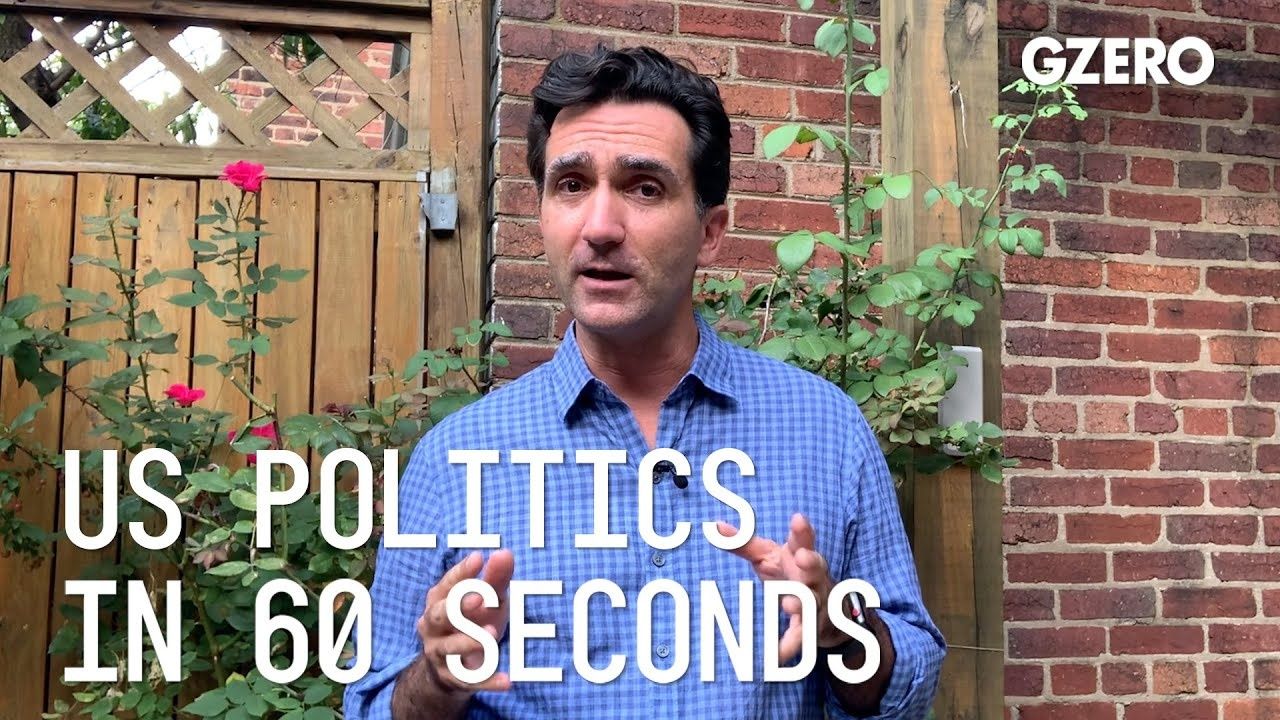US Politics In 60 Seconds
RNC 2020 recap: Trump avoids talk of COVID & focuses on white, rural base

RNC 2020: Trump Avoids Talk of COVID, Focuses on White Rural Base | US Politics In :60 | GZERO Media

Jon Lieber, Managing Director for the United States at the Eurasia Group, shares his perspective on a special Republican National Convention wrap up edition of US Politics In 60 Seconds:
So, what struck me about the convention this week was that it became really clear the messages that Donald Trump wants to hammer home as the campaign enters into its final two months. The first is his record of accomplishments, which included renegotiating trade deals, getting tough on China, a record number of jobs, and a great economy, that of course, all went away during the coronavirus, which did not really get much of a mention during the convention. The second thing he wants to hammer on is Joe Biden. Two claims in particular about Biden. One is that he's a tool for the radical left. I believe President Trump even said he'd be a Trojan horse for socialism in the United States. And the second is that Trump really wants to focus on some of these images of urban protests and riots in the streets and tie the protests to the Democratic Party, claiming that it's the fault of Democratic mayors and that if you elect Democrats, you're just going to get more protests.
So, Biden got a very small convention bounce, really none at all, after his week-long Democratic convention and I expect you're going to see Trump not get much of a bounce after his and what's really notable about this race is how static it's been. Biden's had a national eight to nine-point lead and the polling aggregates. Trump's approval ratings have been in the low 40s, but now they've rebounded slightly to 42% on average nationally. And it's probably going to remain that way for the rest of the campaign. The goal here for President Trump, and you saw a lot of this on display at the convention, is to target messages directly at his base by saying he's the most pro-cop, pro-life, pro-farmer, pro-veteran president that's ever existed on the Earth, and in doing so, he wants to get out his base, who is predominately white, rural voters. If he can do that in states like Wisconsin, Michigan, and Pennsylvania, then he still has a shot to win this election because even a small increase in participation by white voters in those states would overwhelm any potential turnout advantage that Joe Biden might get from, say, African-American voters who are showing up to vote in the numbers they did in 2012 for President Obama.
So, two months to go left in the race. Lots can still change. I think that even though Biden's got this big polling lead, it actually remains fairly close. And we'll be checking in to see how it goes.At the 2026 World Economic Forum in Davos, GZERO’s Tony Maciulis spoke with Ariel Ekblaw, Founder of the Aurelia Institute, about how scaling up infrastructure in space could unlock transformative breakthroughs on Earth.
On Friday, US officials warned the transitional council in charge of Haiti not to remove interim Prime Minister Alix Didier Fils-Aimé, ahead of a deadline for the council to step down on Feb. 7.
The president of the tiny eastern European country has suggested possibly merging with a neighbor.
$25 billion: The minimum amount of investment required to fulfil Jared Kushner’s ambitious property plan for Gaza.